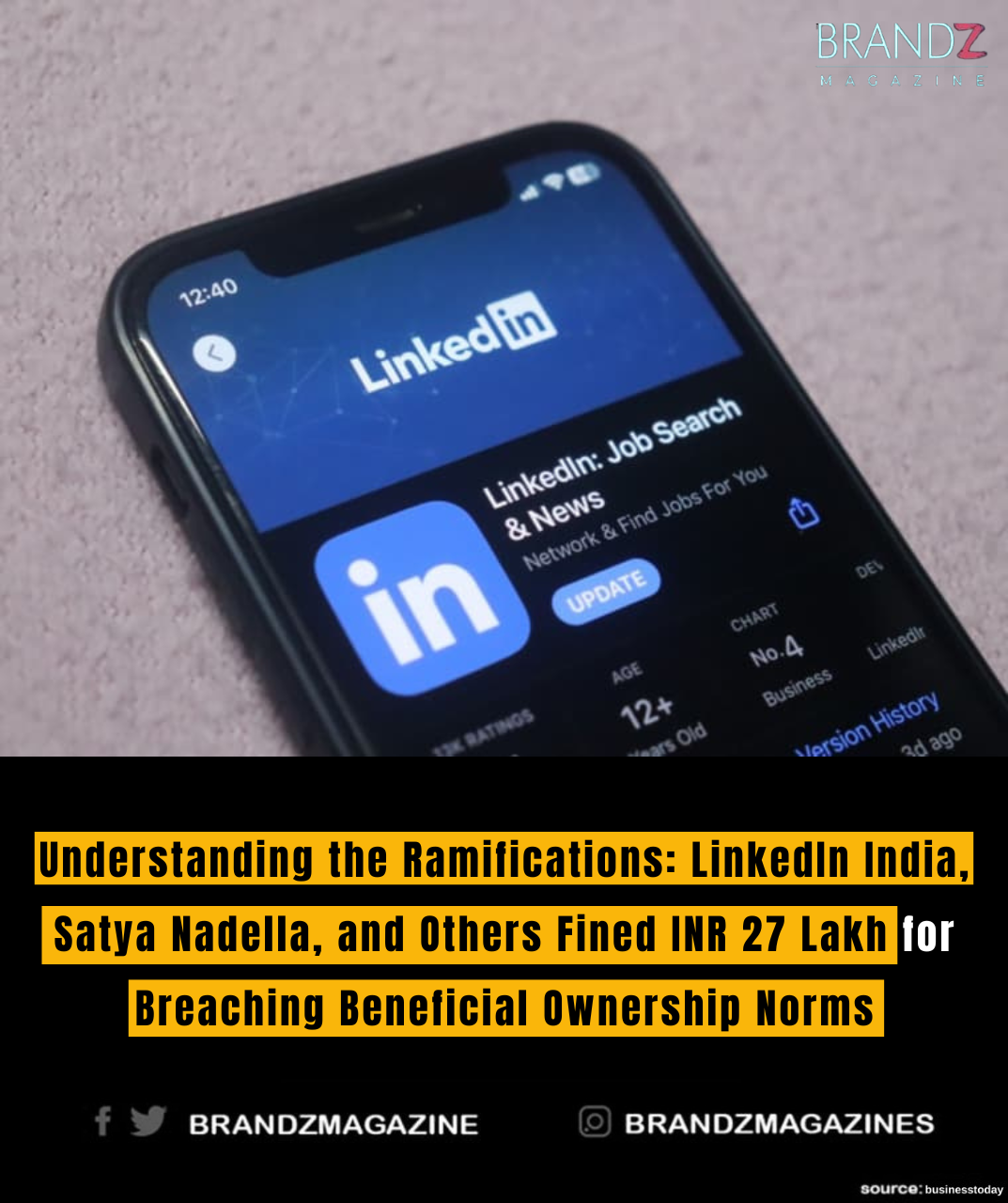
Recently, LinkedIn India, along with prominent figures such as Satya Nadella, found themselves at the center of regulatory scrutiny, facing fines totaling INR 27 Lakh for breaching beneficial ownership norms. This development has not only raised eyebrows but also sparked discussions regarding corporate transparency and regulatory compliance in India’s business landscape.
The crux of the matter lies in the violation of beneficial ownership norms, which require companies to disclose information about individuals who ultimately own or control a significant portion of the company’s shares. Such regulations are designed to promote transparency, combat financial crimes like money laundering and tax evasion, and ensure accountability in corporate governance.
LinkedIn India, a subsidiary of Microsoft-owned professional networking platform LinkedIn, was among the entities penalized for non-compliance with these norms. The company, known for its expansive user base and influence in the professional networking sphere, found itself in the regulatory crosshairs due to lapses in adhering to disclosure requirements regarding beneficial ownership.
Furthermore, the inclusion of Satya Nadella, CEO of Microsoft, among those fined has added a layer of complexity to the situation. While Nadella’s association with LinkedIn’s parent company, Microsoft, is well-documented, his personal involvement in the regulatory issue underscores the far-reaching implications of corporate governance lapses, even for high-profile individuals.
The imposition of fines totaling INR 27 Lakh serves as a stark reminder of the importance of regulatory compliance in today’s business environment. Regardless of the company’s size or stature, adherence to legal and regulatory frameworks is non-negotiable, safeguarding not only the interests of stakeholders but also the integrity of the broader financial ecosystem.
Moreover, this incident sheds light on the challenges associated with ensuring compliance, particularly in multinational corporations operating across diverse jurisdictions. The intricacies of regulatory requirements, coupled with the need for effective oversight and monitoring mechanisms, underscore the complexity of navigating the regulatory landscape for businesses operating on a global scale.
In response to the fine, LinkedIn India has reiterated its commitment to compliance and pledged to work closely with regulatory authorities to address any lapses. This proactive stance is essential not only for mitigating immediate regulatory risks but also for safeguarding the company’s reputation and maintaining the trust of its stakeholders.
Beyond the immediate repercussions for LinkedIn India and Satya Nadella, this incident serves as a cautionary tale for businesses across sectors. It underscores the imperative of robust compliance frameworks, proactive risk management practices, and a culture of transparency and accountability at all levels of the organization.
Moving forward, the focus must be on strengthening regulatory oversight, enhancing transparency requirements, and fostering a culture of compliance within organizations. This entails investing in resources and capabilities to ensure that regulatory obligations are not only met but also integrated into the fabric of corporate governance and decision-making processes.
In conclusion, the fine imposed on LinkedIn India and individuals like Satya Nadella for breaching beneficial ownership norms serves as a wake-up call for the corporate world. It underscores the importance of regulatory compliance, transparency, and accountability in fostering trust, promoting financial integrity, and sustaining long-term business success in an increasingly complex and interconnected global economy.

